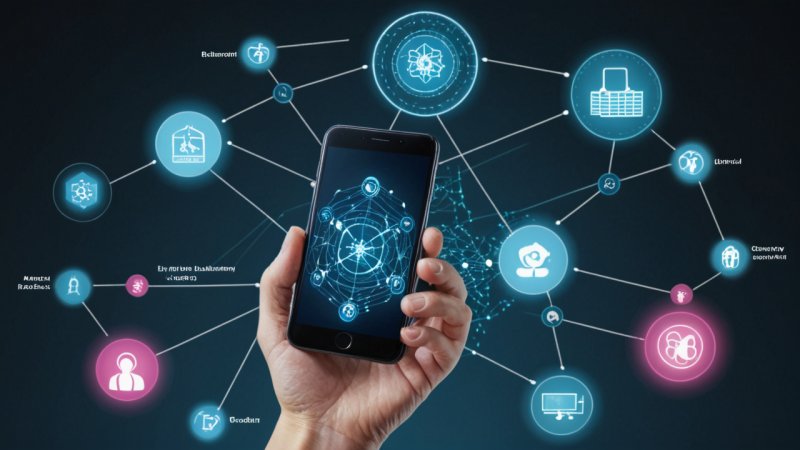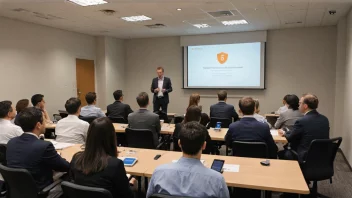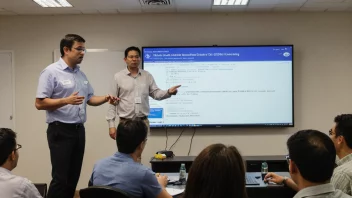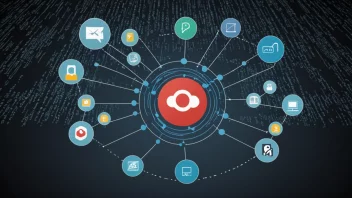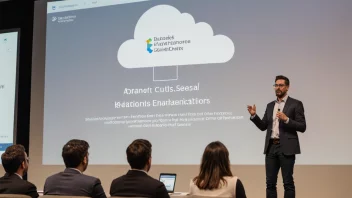In an era where digital transformation is reshaping industries, blockchain technology has emerged as a game-changer, particularly in the realm of global health initiatives. The decentralized, transparent, and secure nature of blockchain holds immense potential for improving healthcare delivery, enhancing data integrity, and ensuring equitable access to health resources. As the world continues to grapple with complex health challenges such as pandemics, chronic diseases, and health inequities, the application of blockchain could provide innovative solutions that not only streamline processes but also empower patients and healthcare providers alike.
Understanding Blockchain Technology
At its core, blockchain is a distributed ledger technology that allows multiple parties to maintain a shared database without the need for a central authority. Each transaction is recorded in a block, which is then linked to the previous block, forming a chain of blocks—hence the name 'blockchain.' This structure provides several key advantages:
- Decentralization: Unlike traditional databases controlled by a single entity, blockchain operates on a network of computers (nodes) that collectively validate and store data.
- Immutability: Once recorded, data on the blockchain cannot be altered or deleted, ensuring a permanent and verifiable record.
- Transparency: All participants in the network have access to the same data, fostering trust and accountability among stakeholders.
Applications of Blockchain in Global Health Initiatives
The applications of blockchain in health initiatives are vast and varied, with the potential to address numerous challenges faced by healthcare systems worldwide. Here are some notable applications:
1. Supply Chain Management
One of the most critical aspects of healthcare is the supply chain, which involves the distribution of medicines, vaccines, and medical supplies. Blockchain can enhance visibility and traceability in the supply chain, reducing the risk of counterfeit products. For example, the pharmaceutical company Pfizer has experimented with blockchain to track the movement of drugs, ensuring that they are sourced from legitimate suppliers and reaching patients safely.
2. Patient Data Management
Patient data is often siloed across different healthcare providers, making it difficult to access comprehensive health records. By utilizing blockchain, patients can have greater control over their data, allowing them to grant access to healthcare providers as needed. The MedRec project at MIT is a pioneering example, aiming to create a decentralized patient record system that is secure and accessible to authorized parties while maintaining patient privacy.
3. Clinical Trials and Research
Blockchain can improve the integrity of clinical trials by providing a secure and transparent method for recording trial data. This can help prevent data manipulation and ensure that results are accurately reported. For instance, the blockchain-based platform, ClinTex, aims to enhance the efficiency of clinical trials by providing real-time insights into data quality and trial progress.
4. Health Insurance Claims Processing
Health insurance claims processing is often cumbersome and prone to fraud. By implementing blockchain, insurers can automate claims processing through smart contracts, which execute automatically when predefined conditions are met. This not only speeds up the process but also reduces administrative costs. Companies like Guardtime are exploring blockchain solutions for health insurance to streamline claims and reduce fraud.
Challenges and Considerations
Despite the promising applications of blockchain in global health initiatives, there are several challenges that must be addressed:
- Interoperability: Different healthcare systems and technologies must be able to communicate with one another for blockchain to be effective.
- Regulatory Compliance: Health data is subject to stringent regulations, and blockchain solutions must comply with these laws to protect patient privacy.
- Scalability: As the number of transactions increases, blockchain networks may face scalability issues that could hinder performance.
Case Studies and Success Stories
Several organizations are leading the way in implementing blockchain solutions for health initiatives:
1. Everledger
Everledger is a blockchain-based platform that tracks the provenance of valuable assets, including diamonds and fine wines. In the health sector, they have expanded their technology to trace the supply chain of pharmaceuticals, ensuring authenticity and reducing fraud.
2. Solve.Care
Solve.Care leverages blockchain to improve care coordination and patient engagement. Their platform connects patients with healthcare providers, automating administrative processes and enhancing communication, which is crucial for managing chronic conditions.
3. The World Health Organization (WHO)
The WHO has recognized the potential of blockchain for addressing global health challenges. They are exploring its use in vaccine distribution, enabling more efficient tracking of vaccine supplies during public health emergencies.
Future Prospects of Blockchain in Global Health
The future of blockchain in global health initiatives looks promising as more stakeholders recognize its potential to transform healthcare delivery. As technology advances and regulatory frameworks evolve, we can expect to see broader adoption of blockchain solutions. Collaboration among governments, healthcare providers, and technology companies will be essential to overcome challenges and fully realize the benefits of blockchain in improving health outcomes worldwide.
In conclusion, blockchain technology stands at the forefront of innovation in global health initiatives, offering solutions to many of the systemic issues facing healthcare today. By enhancing transparency, security, and efficiency, blockchain has the potential to revolutionize the way health information is managed and accessed. As we move forward, it is critical to continue exploring and investing in these technologies to build a healthier, more equitable world for all.
